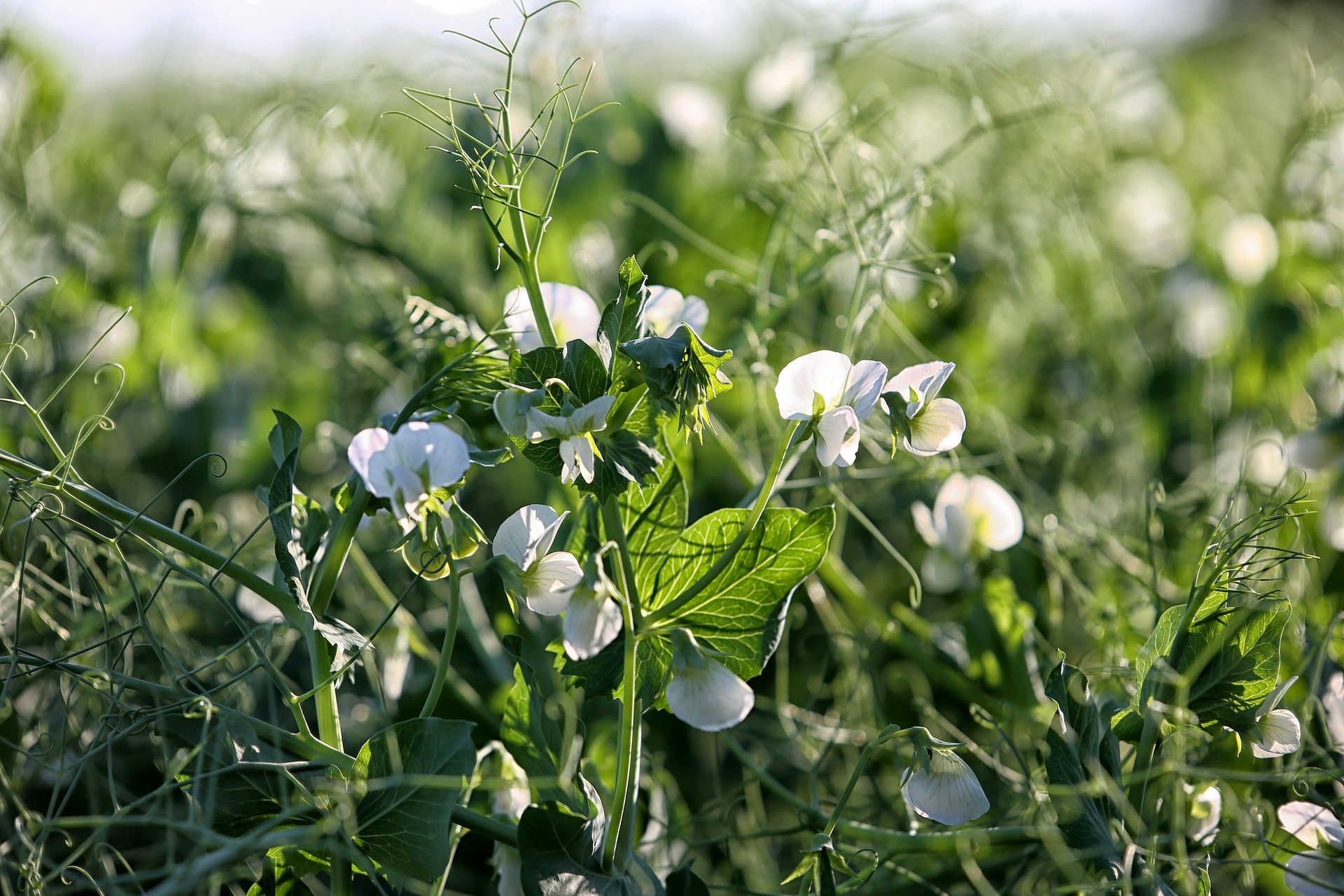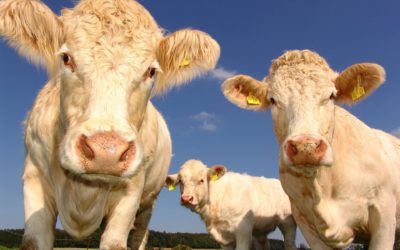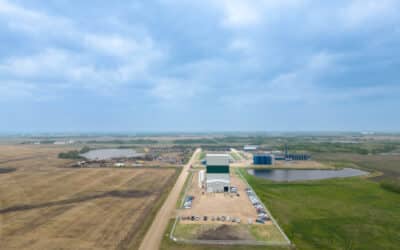Value-added opportunities abound for the Prairies, just don’t bring it up with Alberta.
Plant protein has officially become a grocery store and restaurant mainstay, graduating from the ranks of fringe, fad and trend. Today, more consumers than ever demand — not prefer — plant-based options and farmers across the Canada have more than enough product in the field to meet demand. As unique products continue to hit store shelves and menus for consumers, many in agriculture and the agrifood supply chain wonder about opportunities to capture greater value. It certainly seems as though some major players have noticed.
While pulse production across Canada carries on with big acres, farmers have been excited to see headlines of new facilities being built in both Manitoba and Saskatchewan. However, Alberta, a diversified bastion of Prairie agriculture, seems a step behind these days. Excitement was rising for the last number of years in Alberta before an abrupt cull this past spring derailed encouraging work.
The Plant Protein Alliance of Alberta (PPAA), with roots in the Alberta Food Cluster, began in 2016 and was incorporated in 2018 to try and connect all the players in the supply chain together, facilitate business opportunities and truly create, for the first time ever, a protein ecosystem for the province to ultimately bring greater economic value to Alberta. It wasn’t just pulses, though that is the dominant crop. There was support and focus on hemp, flax, cereals, sunflowers and more. When it operated, four key focus areas were to leadership and supporting key alliances, encourage collaborative business relationships, promote new ideas and, in general, build awareness.
The PPAA typically received annual operating funds in spring. In early March of this year the funding was confirmed to be extended to the PPAA for another year. However, something happened between the beginning and end of the month. The provincial government pulled back every nickel of support on March 31, forcing the group to shut its doors, and, really, any work being done on value-added opportunities. The irony, many observed, is that Devin Dreeshen, the province’s agriculture and forestry minister at the time, had spoken publicly multiple times about Alberta’s need for greater value-added business and to stop the age-old practice of being simple hewers of wood and drawers of water.
Ideas are split on what went wrong and why funding was yanked and those with hot takes keep them behind closed doors. Whatever the reason was, the fact remains the PPAA is dead. It held a dissolution AGM on Aug. 24, and, after paying final invoices, closed its financial accounts and made a modest donation of remaining funds to STARS Air Ambulance.
Allison Ammeter, a Sylvan Lake, Alta., farmer, was the Alliance’s chair for its entire lifespan, and is saddened to see the doors closed after it was beginning to build positive momentum.
“Alberta is not embracing a value-add strategy, and they need to,” says Ammeter. “It is huge the protein we produce, it doesn’t have to be a pulse strategy. It needs to be a protein strategy.”
Ammeter, who has also been the chair for Pulse Canada and the Alberta Pulse Growers, believes Alberta is about to be seriously behind in the Prairies as both Saskatchewan and Manitoba continue their surge forward with processing.
“Everybody is working together to draw in these companies. And Alberta? Giving lip service and saying, ‘value is important to us,’ and yet they’re not backing it up with anything and I have no defence of them.”
She believes Alberta has a three- to five-year window to get serious about value-add for pulses before it’s too late. Production will still continue, but the GDP and jobs will be housed elsewhere.
Central Alberta farmer John Kowalchuk is worried about less opportunities for him with pulse production and laments the loss of the PPAA.
“It’s too bad because they were a group that could have helped increase some of our pulse uses in this area for sure,” he says. “I think if some of these companies understood the potential a little more, we could sell the potential, we’d see more people jump on it.”
Kowalchuk regularly grew faba beans, but with his local buyer going out of business recently, he is now searching for a new market, and not growing them in the meantime. He believes there is potential on fabas’ value-add, too.
“Ag is going to be the biggest industry going forward for Alberta, we need to look at adding to our industry, getting some value-add,” he says. “The potential is high there, so why aren’t we processing them locally? adding jobs locally? I see that as a farmer.”
Kowalchuk is not alone in seeing the higher value opportunities for farmers growing plant-based proteins.
Bill Greuel is the CEO of Protein Industries Canada based in Regina, Sask. Greuel oversees the organization, one of the federal government’s five research superclusters, designed to drive innovation, create wealth as well as jobs. He thinks across the country there is reason to be excited about the plant proteins.
With more than 550,000 tonnes of value-added pulse processing capacity in recent years, it’s good news for farmers.
“There’s so much opportunity here,” he says, adding that Alberta, despite losing the PPAA, has many reasons to feel like the hopper is still half full, noting Alberta has all the underlying fundamentals to continue to be a vital piece of the plant-based proteins industry.
Such fundamentals, Greuel says, include raw materials, infrastructure, capital, talent, clean water, a competitive business environment, good tax rates and pulse acres which continue to rise.
For Canada as a whole, Greuel is excited about where the country is headed. He points to Pulse Canada’s 25 by 2025 initiative, a plan hatched four years ago to have a quarter of all Canadian pulses be used specifically for new uses and market opportunities.
“We’re a big country, but pretty small in terms of population, anything around this growth should be thought of on a national basis,” he says,
Greuel believes globally pulses will become a nine-figure business and if Canada can even capture 10 per cent of that total value, it would mean another six to seven million tonnes of domestic processing capacity.
“It’s going to require the creation of many food brands that are global in scale,” he says. “We can’t consume $25 billion worth of goods in Canada.”
Greuel suggests long-term potential is for the Prairies to become the engine room, producing and processing pulses into high-value ingredients before being assembled into finished food products in large centres, such as the GTA.
Back in Alberta, Ammeter cannot help but remain an eternal optimist and reminds farmers that there is a world of opportunity for plant-based proteins. “We all think Beyond Meat burger, but there’s so much more.
“My ultimate goal is that we are like Denmark or the Netherlands, and 100 per cent of what we grow has at least some value added to it before it ever leaves our border,” she says. “It’s a mind shift; you’ve got to stop thinking in terms of ‘are we an exporting nation feeding the world?’ Yes. I’m so sick of hearing that. We could be an exporting nation, sending finishing products or ingredients around the world.”
Ammeter is adamant that as many countries’ populations move from low income to middle class status, Canada must be there to satisfy the enormous impending demand.
“They’re going to get that protein somewhere and I would like them to get it from safe Canadian grown products,” she says.
Related Articles
Feds Invest $4.3 million to Support Pulse Crop Marketing
Plant Protein Alliance of Alberta Shuts Down After Funding Pulled
Plant Protein Alliance of Alberta Striving for a Paradigm Shift in Alberta Agriculture







